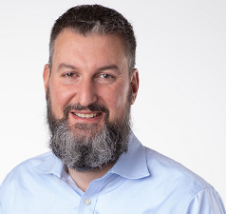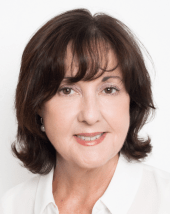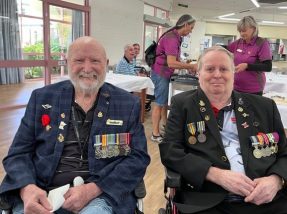Aged care tech ‘leaping in bounds’ says insider
Technology is advancing at speed and will play a greater role in supporting healthy ageing in the future, according to an industry expert.

Technology is advancing at speed and will play a greater role in supporting healthy ageing in the future, according to an industry expert.
“Technology can connect people and reduce isolation; it can empower older adults to lead healthy, independent and engaged lives,” said Professor Alex Mihailidis, scientific director at AGE-WELL – Canada’s technology and ageing network.
Speaking to Australian Ageing Agenda, Professor Mihailidis said technology would allow individuals to age in place as well as support residents and staff in aged care homes. “It can enable people to age safely wherever they choose, and it can transform care and services across all settings.”
Technology, Professor Mihailidis told AAA, is “leaping in bounds” with a “remarkable range” of services and platforms in development or already having an impact on the sector.
These include:
- wearables
- health monitors
- remote therapies
- virtual exercise systems
- medication management tools
- daily management tools for people living with dementia.
“These are just some of the innovations that will help older adults maintain their quality of life, support their caregivers and ease pressures on long-term care.”
Smart homes allow ageing in place
Professor Mihailidis told AAA about some smart home systems AGE-WELL is developing. “Our teams are creating sensors to identify potentially risky situations in the kitchen and signal people to take corrective actions.”
As well, Professor Mihailidis and his team was currently testing pressure-sensitive mats that can be placed under a mattress to monitor an older person’s health during sleep and detect and monitor conditions such as sleep apnoea and congestive heart failure.

But technology can do more than monitor and detect, said Professor Mihailidis – it can predict. “In my own research, we are building predictive algorithms to determine who will develop dementia by gathering information on patterns of daily living. We want to be proactive – to act before it’s too late.”
Addressing fears that a reliance on tech will expose the sector to cyber attacks, Professor Mihailidis said there will always be security concerns with such systems.
“As such, privacy and security must not be an afterthought when developing these systems. These aspects must be incorporated into all technologies from the beginning of the design process.”
ARIIA conference 2023
Professor Mihailidis will be speaking on technology and ageing at the Aged Care 2030 and Beyond conference in May.
Hosted by Aged Care Research & Industry Innovation Australia, the two-day event will bring together aged care executives, nurses, carers, clinicians, researchers, policy makers, and digital trailblazers among others – to discuss and debate the future of aged care.
Held on 15 and 16 May at the Adelaide Oval, the conference will feature a variety of speakers including:
- Minister for Aged Care Anika Wells
- Interim Inspector-General of Aged Care Ian Yates
- ABC chair Ita Buttrose
- Olympic legend Dawn Fraser
- Q&A host Stan Grant
- futurist Ross Dawson
- trend analyst Bernard Salt.
The conference program includes presentations, plenaries, and think-tank sessions. Six key priorities have been identified by the aged care sector for discussion:
- person-centred living for dementia
- embracing diversity for positive ageing
- solutions for mental health and wellbeing and social isolation
- dignity of risk in community care
- innovation for end of life and palliative care
- workforce.
“It’s time to set a new vision.”
ARIIA research director Professor Sue Gordon said the conference would bring together a large spectrum of stakeholders.

“We are gathering together leading thinkers, futurists and disruptors, and many older people from the community who want to make a significant difference to the future of aged care. I look forward to hearing from these people, including the baby boomers who have strong opinions about positive ageing and what they need and want as they get older.”
Stakeholders will also be given the chance to discuss forthcoming challenges said Professor Gordon. “We have new issues to face with innovation, technology uptake, diversity, inclusion, person-centred care, risk and much more that we want to discuss and find practical outcomes, and real-world solutions.”
She added: “It’s time to set a new vision for how we can all live our lives well in the future.”
Comment on the story below. Follow Australian Ageing Agenda on LinkedIn and Facebook, sign up to our twice-weekly newsletter and subscribe to AAA magazine for the complete aged care picture.



